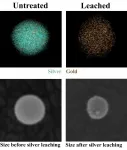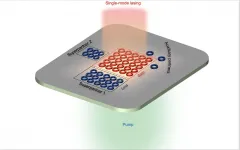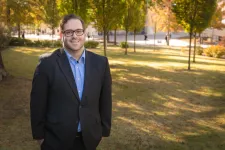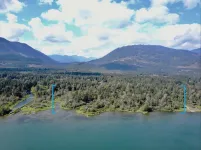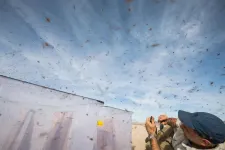(Press-News.org) A radically reformed approach to education, in which different subjects teach connected themes, like climate change or food security, is being proposed by researchers, who argue that it would better prepare children for future crises.
In a newly-published study, education researchers from the Universities of Cambridge and Edinburgh argue that there is a compelling case for a drastic shake-up of the school curriculum, so that subjects are no longer taught independently of one another. Instead, they argue that the arts and sciences should 'teach together' around real-world problems, and in a manner rooted in pupils' lived experiences.
The model draws inspiration from Renaissance polymaths like Leonardo Da Vinci, who worked across disciplinary boundaries in pursuit of deeper knowledge. Similar, 'trans-disciplinary' approaches are already used in well-regarded education systems such as Finland's. The idea also echoes recent calls by the youth campaign, Teach the Future, to break down subject silos to teach climate change.
The academic paper, in the journal Curriculum Perspectives, also presents evidence from two recent projects in which pupils appeared to benefit from an approach to teaching which blurred subject boundaries.
One, which invited South African teenagers from disadvantaged settings to create 'math-artworks', produced evidence that as well as increasing their familiarity with key mathematical principles, the project also enabled pupils to understand more about the relevance of maths in their own lives. In the second case study, primary school children in Aberdeen showed a deeper understanding of food security and environmental protection issues after learning to grow food in their school grounds.
Pam Burnard, Professor of Arts, Creativities and Education at the University of Cambridge, said: "If we look at the amazing designs that Da Vinci produced, it's clear he was combining different disciplines to advance knowledge and solve problems. We need to encourage children to think in a similar way because tomorrow's adults will have to problem-solve differently due to the existential crises they will face: especially those of climate, sustainability, and the precarity of life on Earth."
Dr Laura Colucci-Gray, of the University of Edinburgh's School of Education and Sport, said: "The nature of these problems calls for a radically different approach to knowledge. We are proposing a move from the idea of a curriculum as something children are just 'given' to a curriculum 'in-the-making', in response to transformations that will define their lives."
The paper contributes to an emerging field called 'STEAM' education. This seeks to reinsert the 'A' of arts into national attempts to encourage the uptake of STEM subjects (science, technology, engineering and mathematics), in response to a critical skills gap in related areas of the economy.
Some educationists argue that the emphasis on STEM is devaluing other subjects, and that arts disciplines are also powerful tools for delivering the problem-solving skills society needs. "For education to reflect that requires a major shift away from linear conceptions where subjects are taught separately, and towards a situation where they are inseparable," Burnard said.
In their alternative model, the researchers suggest giving schools greater freedom to determine how to meet general study targets set by the curriculum. Teachers and leadership teams would make collective decisions and share practices about how to engage pupils with unifying, cross-curricular themes, such as environmental sustainability.
They add that this might also involve the imaginative use of space and resources, and closer links between schools and their communities to connect learning to pupils' lived experiences beyond the classroom.
Evidence is also emerging that a transdisciplinary approach enhances pupils' acquisition of key skills. In the math-artwork project cited in the study, students in South Africa were asked to create art which showed the links between maths and the world around them. Subsequent analysis of the 113 submissions showed that pupils had applied principles such as measurement, ratio and proportion, and geometry in their creations.
The researchers also found, however, that participants had engaged deeply with the meaning of maths at a level rarely seen in conventional lessons. One especially powerful example, by a 16-year-old male student, was entitled The Stressed Vitruvian Man, inspired by Da Vinci's The Vitruvian Man. Like Da Vinci, the young artist's work was partly a study of the proportions of the human body, but at the same time, the student used it to comment on both the potential, and dangers, of creating a society built on mathematical principles alone.
Similarly, the primary school pupils in Aberdeen showed a deepened understanding of issues like food production and natural resource management when they were given the opportunity to take responsibility for a small piece of land in their school. Researchers found that the survival of plants became personal to the pupils, rather than just an abstract concept that they had learned about in science lessons. It also introduced them to other, related ethical challenges which those lessons rarely address: such as how to produce enough food when space is limited.
Any attempted reimagining of education along transdisciplinary lines would require children's attainment to be measured differently, the researchers add. "It would require a system of testing which measures how children are internalising ideas and what they are expressing - not just what they know," Burnard said. "That may be an uncomfortable idea for some, but it is the sort of radical thinking we need if education is going to prepare young people for the future."
INFORMATION:
California produces nearly 4 million tons of world-class wine each year, but with that comes thousands of tons of residue like grape skins, seeds, stems and pulp. What if scientists could harness that viticultural waste to help promote human health?
Maybe they can, according to new research from food scientists at the University of California, Davis. In a study published in the journal LWT - Food Science and Technology, the team discovered a wealth of potentially health-enhancing compounds and sugar molecules called oligosaccharides within chardonnay wine-grape pomace.
Oligosaccharides are found in many plant and animal tissues, including human breast milk. Recent advances have revealed oligosaccharides' vast potential ...
HOUSTON - (April 22, 2021) - There's gold in them thar nanoparticles, and there used to be a lot of silver, too. But much of the silver has leached away, and researchers want to know how.
Gold-silver alloys are useful catalysts that degrade environmental pollutants, facilitate the production of plastics and chemicals and kill bacteria on surfaces, among other applications. In nanoparticle form, these alloys could be useful as optical sensors or to catalyze hydrogen evolution reactions.
But there's an issue: Silver doesn't always stay put.
A new study by scientists at Rice University and the University ...
RESEARCH TRIANGLE PARK, N.C. -- New photonics research paves the way for improved lasers, high-speed computing and optical communications for the Army.
Photonics has the potential to transform all manners of electronic devices by storing and transmitting information in the form of light, rather than electricity. Using light's speed and the way information can be layered in its various physical properties can increase the speed of communication while reducing wasted energy; however, light sources such as lasers need to be smaller, stronger and more stable to achieve that, researchers ...
PHILADELPHIA-- Art appreciation is considered essential to human experience. While taste in art varies depending on the individual, cognitive neuroscience can provide clues about how viewing art affects our neural systems, and evaluate how these systems inform our valuation of art. For instance, one study shows that viewing art activates motor areas, both in clear representations of movement, like Adam and Eve in Michelangelo's Expulsion from Paradise, and in implied movement through brush strokes, like in Franz Kline's gestural paintings.
Altered neural functioning, like that experienced in patients with Parkinson's disease, changes the way ...
University of Arkansas law professor Jordan Blair Woods challenges the conventional wisdom that only police can enforce traffic laws.
In "Traffic Without Police," to be published in Stanford Law Review, Woods articulates a new legal framework for traffic enforcement, one that separates it from critical police functions, such as preventing and deterring crime, conducting criminal investigations and responding to emergencies.
If not the police, who then would enforce traffic laws? As Woods explains, jurisdictions would delegate most traffic enforcement to newly created traffic agencies. These public offices would operate independently from ...
Researchers at Carnegie Mellon University and McGill University have adapted an algorithm first developed to spot anomalies in data, like typos in patient information at hospitals or errant figures in accounting, to identify similarities across escort ads.
The algorithm scans and clusters similarities in text and could help law enforcement direct their investigations and better identify human traffickers and their victims, said Christos Faloutsos, the Fredkin Professor in Artificial Intelligence at CMU's School of Computer Science, who led the team.
"Our algorithm can put the millions of advertisements together and highlight the common parts," Faloutsos said. "If they have a lot of things in common, it's not guaranteed, but it's highly likely that it ...
An international group of scientists from Italy, the USA, China and Russia have studied the relationship between collectivism, individualism and life satisfaction among young people aged 18-25 in four countries. They found that the higher the index of individualistic values at the country level, the higher the life satisfaction of young people's lives. At the individual level, however, collectivism was more significant for young people. In all countries, young people found a positive association between collectivism, particularly with regard to family ties, and life satisfaction. This somewhat contradicts and at the same time clarifies the results ...
BOSTON - Exclusively using (or "vaping") e-cigarettes can help people quit smoking, but many people using e-cigarettes to quit smoking continue to smoke cigarettes. New research led by investigators at Massachusetts General Hospital (MGH) reveals that respiratory symptoms--such as cough and wheeze--are more likely to develop when people use both e-cigarettes and tobacco cigarettes together compared with using either one alone. The findings are published in the American Journal of Respiratory and Critical Care Medicine, the flagship journal of the American Thoracic Society.
The ...
A new study by Simon Fraser University historical ecologists finds that Indigenous-managed forests--cared for as "forest gardens"--contain more biologically and functionally diverse species than surrounding conifer-dominated forests and create important habitat for animals and pollinators. The findings are published today in Ecology and Society.
According to researchers, ancient forests were once tended by Ts'msyen and Coast Salish peoples living along the north and south Pacific coast. These forest gardens continue to grow at remote archaeological villages on Canada's northwest coast and are composed ...
In 2005, an ultramarathon runner ran continuously 560 kilometers (350 miles) in 80 hours, without sleeping or stopping. This distance was roughly 324,000 times the runner's body length. Yet this extreme feat pales in comparison to the relative distances that fruit flies can travel in a single flight, according to new research from Caltech.
Caltech scientists have now discovered that fruit flies can fly up to 15 kilometers (about 9 miles) in a single journey--6 million times their body length, or the equivalent of over 10,000 kilometers for the average human. In comparison to body length, this is further than many migratory species of birds can fly in a day. To discover this, the team conducted experiments in a dry lakebed ...
